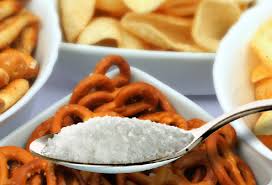

Salty meals, along with body mass indexes (BMIs) and obesity, increases a scary side effect in young children: high blood pressure.
The risk of high blood pressure among children and adolescents has increased 27 percent in the past 13 years, according to a new study in the American Heart Association’s journal
“It is a public health issue our children have higher blood pressures,” stated by Dr. Bonita Falkner, professor of medicine and pediatrics at Thomas Jefferson University in Philadelphia. “Though it may be only 4 to 5 mm Hg (increase), that extra pressure burden at a young age, is carried through
life, can become a large burden.”
Doctors have long known that factors like obesity, high BMI and excess belly fat can lead to an increased risk for high blood pressure among both adults and children. Yet researchers have had difficulty pinpointing other factors contributing to high blood pressure – until now.
In this study, researchers were able to pinpoint for the first time another clear culprit contributing to high blood pressure levels: sodium intake.
Researchers examined the records of over 11,500 children between the ages of 8 and 17 participating in the National Health and Nutrition Examination Survey. They analyzed data from 1988 to 1994 and from 1999 to 2008.

More than 80 percent of children, from both time periods, had a daily sodium intake in excess of 2,300 milligrams. The American Heart Association recommends consuming no more than 1,500 milligrams of sodium per day.
“The salt content of the food supply has increased markedly over the past few decades, and there’s been a progressive rise in the proportion of the average daily diet that is processed food,” Falkner said. “There’s probably much more salt exposure in children now.”
Developing high blood pressure at such a young age, there is some preliminary evidence that shows hypertension could cause damage to some of the body’s key organs.
“Children who already have confirmed hypertension, a good portion of them already have enlargement of the heart; they may have some albumin in the urine suggesting they have kidney strain; they are beginning to show they have thickening in carotid artery and a stiffening of aorta,” Falkner said. “The implication is that the blood pressure level is causing some stress or injury to the cardiovascular system.”
When a doctor discovers high blood pressure in a child, they first check for other health problems that could be exacerbating the blood pressure levels, like cardiovascular or kidney disease. If no underlying issues are identified, they will encourage parents and children to adopt lifestyle changes – such as eating fresh foods and exercising more.
“If it cannot be controlled by lifestyle changes, diet, physical activity and weight control, then we treat them with medication,” Falkner said.
Overall, Falkner hopes people will take note of the role that sodium is playing in increased blood pressure levels. “It had been difficult to prove this, and now that we know it really is there, we have to pay attention to it,” Falkner said.
Sleepless nights could lead to serious mental health problems like schizophrenia and bipolar disorder, a new research has claimed.


 Skipping breakfast may increase chances of a heart attack. A study of older men found who continuously skipped breakfast had a 27 percent higher risk of a heart attack than those who have a morning meal. There’s no reason why the results wouldn’t apply to other people, too, the Harvard researchers said.
Skipping breakfast may increase chances of a heart attack. A study of older men found who continuously skipped breakfast had a 27 percent higher risk of a heart attack than those who have a morning meal. There’s no reason why the results wouldn’t apply to other people, too, the Harvard researchers said.
 Scientists have proved that lack of sleep during pregnancy can lead to severe complications and hinder immune processes, says a study.
Scientists have proved that lack of sleep during pregnancy can lead to severe complications and hinder immune processes, says a study.
